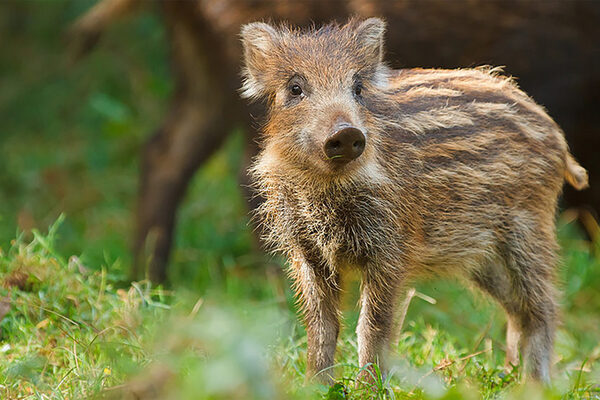African swine fever (ASF)
The city of Wiesbaden has taken measures to prevent the spread of African Swine Fever (ASF) in Hesse. On this page you will find answers to the most frequently asked questions.
What is African swine fever (ASF)?
African swine fever (ASF) is a serious, highly contagious and incurable viral infection that only affects domestic and wild pigs and almost always leads to the death of the infected pigs. There is currently no way to protect pigs through preventive vaccination. There is no danger to humans. ASF is not transmissible to humans - neither through the consumption of pork nor through direct animal contact. ASF is also harmless for domestic and farm animal species other than pigs.
What happened?
A wild boar was found south of Rüsselsheim near a country road. It tested positive for ASF. A corresponding result from the Hesse State Laboratory was confirmed by the Friedrich Loeffler Institute (FLI), the Federal Research Institute for Animal Health, on Saturday, June 15. A restriction zone has been set up in a radius of around 15 kilometers around the site of the discovery. The city of Wiesbaden is also partially located in this zone. The city of Wiesbaden has therefore taken measures.
What measures has the city taken?
With the current new general decree of December 19, 2024, the total hunting ban in exclusion zone 2 was relaxed - about which the hunting community is/was informed separately.
Dogs in Wiesbaden will also benefit from the new regulations. The leash requirement previously imposed due to African swine fever no longer applies in large parts: The leash requirement for dogs currently only applies outside built-up areas in Wiesbaden-Frauenstein and Wiesbaden-Schierstein.
The leash requirement for dogs currently applies to Wiesbaden-Frauenstein and Wiesbaden-Schierstein outside built-up areas.
Regulations also apply to agriculture. Collection points for dead wild boars have been set up at the recycling centers in Nordenstadt and Dotzheim. An overview of all measures can be found in the general decrees.
To which districts do the measures apply?
A wild boar has tested positive for ASF in the district of Groß-Gerau. An exclusion zone was set up in a radius of around 15 kilometers around the location where the animal was found. The following Wiesbaden districts are completely in the zone: Amöneburg, Biebrich, Breckenheim, Delkenheim, Erbenheim, Igstadt, Kastel, Kostheim, Mitte, Nordenstadt, Rheingauviertel, Südost and Westend. The following districts are partially located in the zone: Auringen, Bierstadt, Dotzheim, Frauenstein, Klarenthal, Kloppenheim, Medenbach, Schierstein, Sonnenberg and Nordost.
Where can I find more information?
Further information can be found in the answers to frequently asked questions (FAQs) from the Veterinary Office and the State of Hesse.
Who can answer further questions?
The Veterinary and Consumer Protection Office. It is available Monday to Thursday from 8 a.m. to 12 noon and from 1 p.m. to 3.30 p.m. and on Fridays from 8 a.m. to 12 noon on 0611 890770.
Further information
Contact us
Veterinary and Consumer Protection Office
Address
65187 Wiesbaden
Postal address
65029 Wiesbaden
Arrival
Notes on public transport
Public transportation: bus stop Wielandstraße, bus line 37; bus stop Diesterwegschule, bus line 8.
Telephone
- +49 611 890770
- +49 611 8907749
Opening hours
Office hours of the food inspectors: Monday to Friday from 8 to 9 am.
Office hours of the official veterinarians: by appointment.

